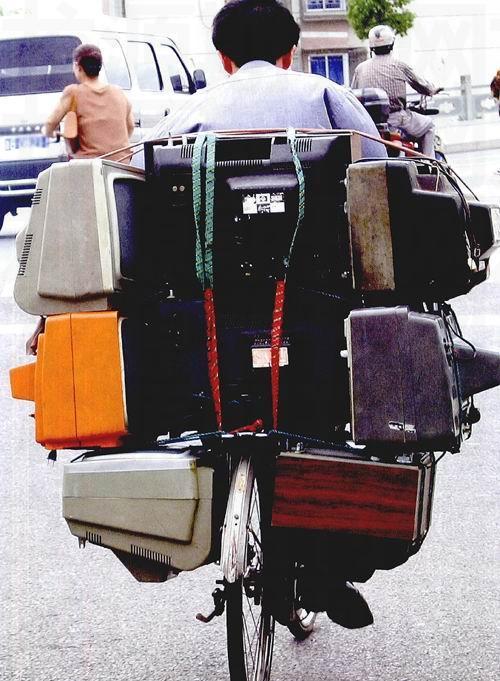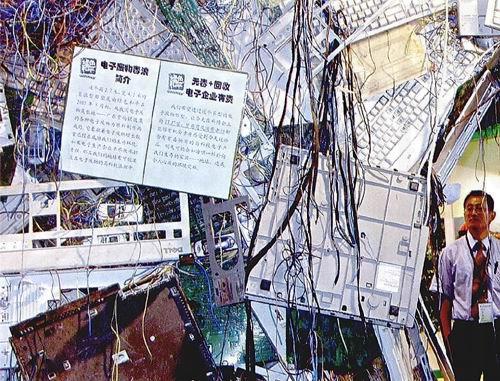New Recycling Measures
LIU QIONG
“Chinas current recycling system is not yet completed and lacks related regulations and rules. In the meantime, private recyclers play an important role. ”
LI Yue, a Beijing resident, intended to upgrade various electric appliances to coincide with the redecoration of his house three months ago. However, all the recyclers in the district could only offer RMB 20-50 for each machine. “I felt pressured to sell them though the price is low, since theres no room in my house for storage,” Li said, frustrated.

But the good news is Measures for Trade-in of Household Electric Appliances were introduced last July, which means consumers may receive a subsidy of as much as RMB 400 for each used appliance when replacing them.
In China, it is common to see recyclers riding tricycles through neighborhoods and alleys calling out to purchase unwanted gadgets. Chinas current recycling system is not yet completed and lacks related regulations and rules. In the meantime, private recyclers play an important role. Statistics show that there are over 20 million private recyclers scattered throughout cities and towns.
According to Zhou Jing, secretary-general of the Changsha Resource Recycling Association, Hunan Province, there are now four major ways to dispose of scrapped home appliances: private recyclers who purchase them directly and then sell them to scrap markets in rural areas, where they are disassembled in a primitive manner; home appliance repair shops who repackage them to sell as second-hand goods; recycling enterprises who collect old ones from home-appliance dealers that pick them up by way of trade-in; and recycling centers in communities who reclaim used appliances and sell them to second-hand markets in southern China. Eighty percent of used home appliances are disposed of through one of the first two channels.
Hidden Danger
“Dismantlement by private recyclers often causes pollution, and the rate of recycling is quite low,” Xu Dongsheng, deputy secretary-general of China Household Electrical Appliances Association, points out. In China, appliance manufacturing is a big industry and new consumption is high. Now there are a large number of home appliances 10 years and even 20 years old in the country, and its time for their owners to upgrade. Unfortunately the scrapped televisions, refrigerators and washing machines that have reached the end of their usefulness may be harmful to the environment if not disposed of properly.
Soldered tin and plastic parts of appliances all contain toxic substances. Take an electronic appliance like a computer for example, half of the 700 chemicals in its makeup are harmful to our health, such as lead, cadmium, arsenic, nickel and hydrargyrum.

However, formal recycling enterprises may resolve this problem. Wanrong Science and Technology Co., Ltd. in Hunan Province focuses on non-hazardous treatment of electronic waste and renewable resource utilization. Chen Xuezhang, director of the companys General Executive Office, tells China Today that it is possible to dispose of used electronic appliances in an environmentally-friendly way – with zero discharge of waste.

